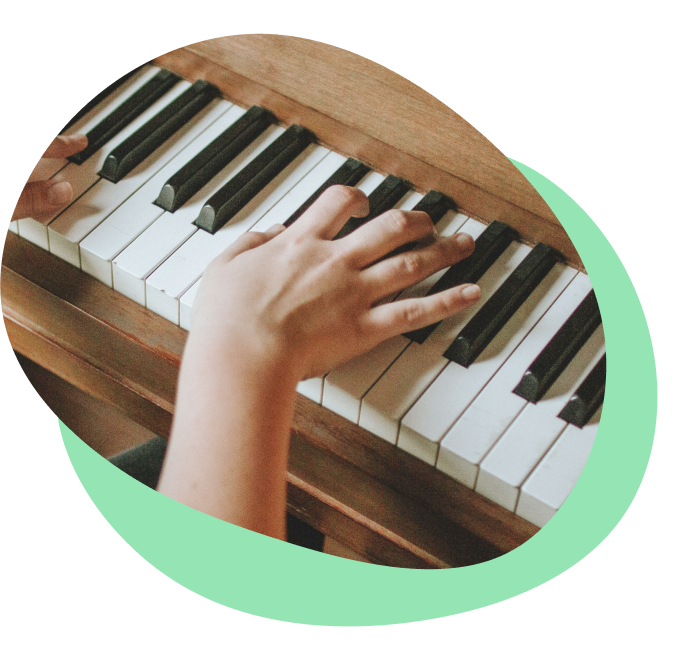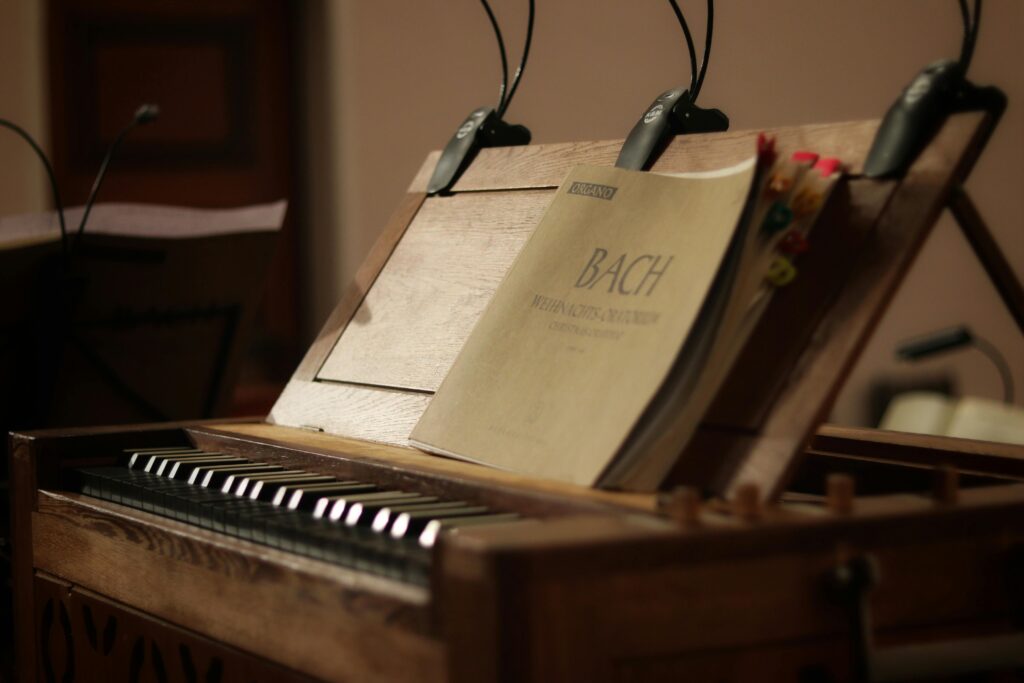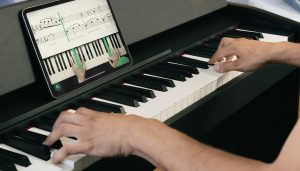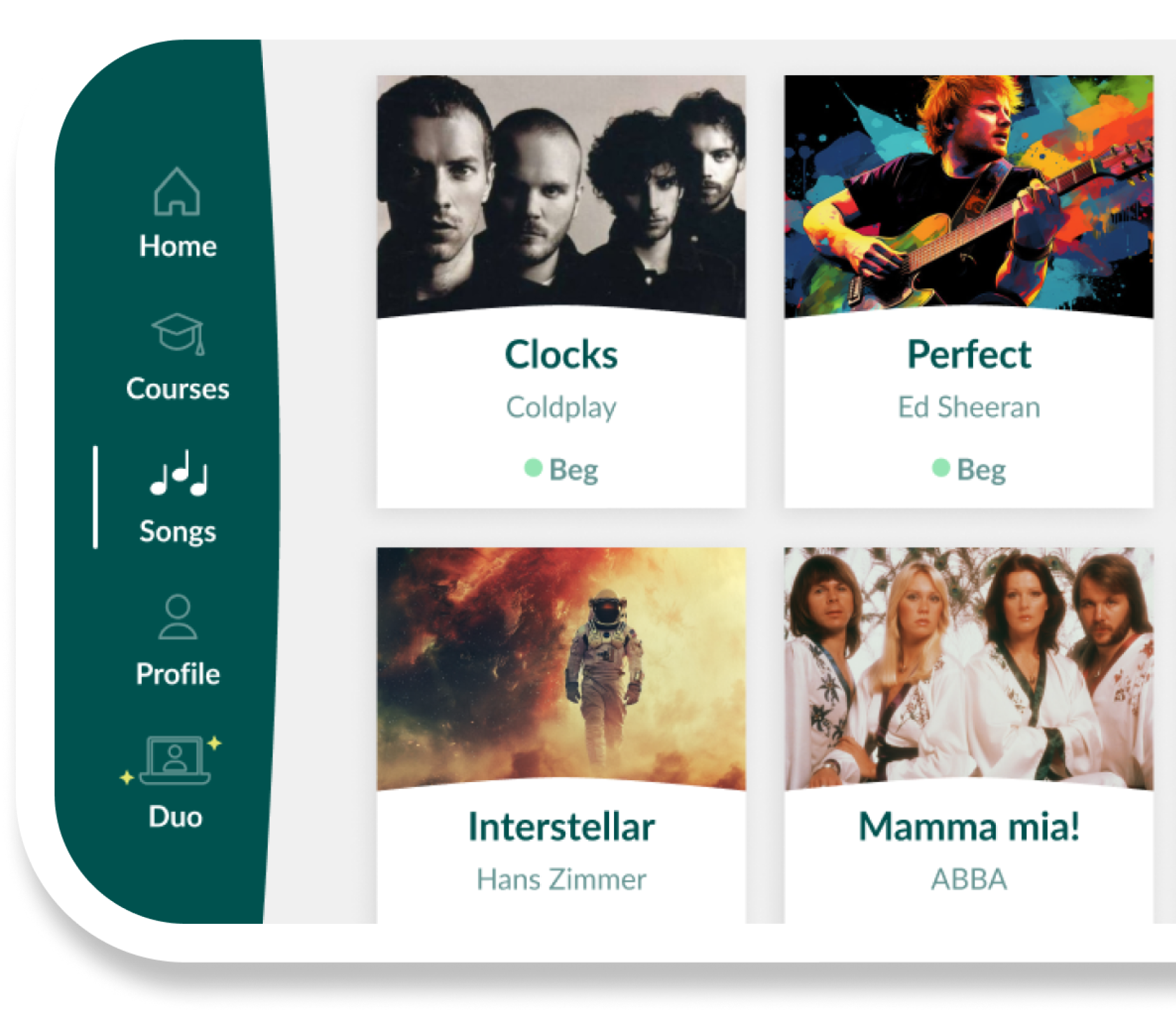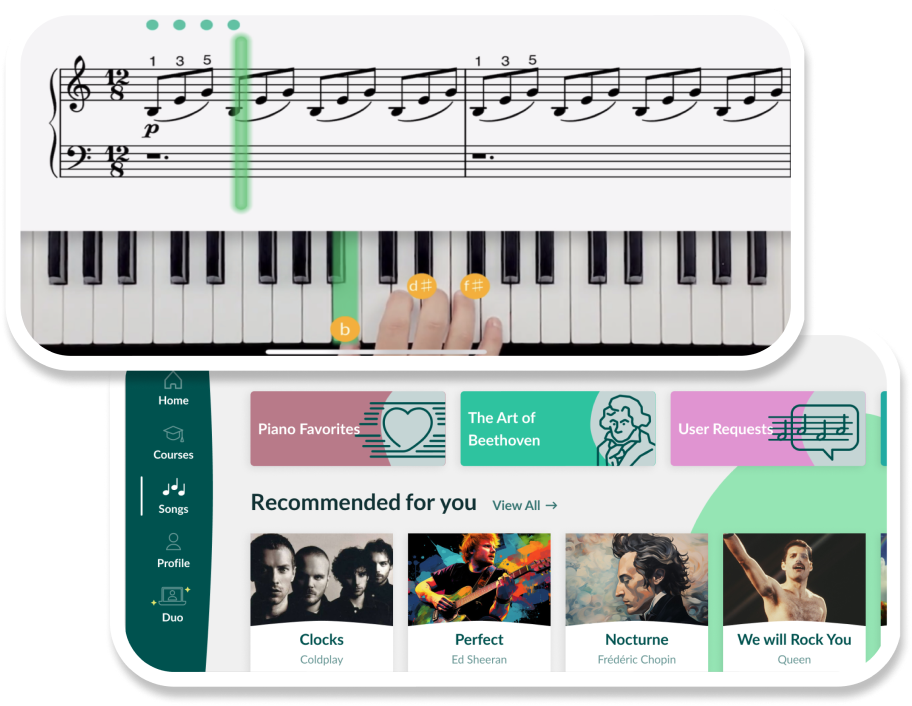Piano drills are an excellent way to build your foundational skills at the piano. These exercises have been practiced by generations of pianists and enhance muscle memory, precision, and musical expression.
In this article we will explore the role of piano drills and check out how they can help beginning and experienced pianists refine their skills and take their piano playing to the next level!
- Fall in love with the music - Learn your favorite songs, at a level suitable for you.
- Enjoy interactive piano lessons - Explore courses covering music theory, technique chords & more.
- Get real-time feedback - Skoove's feedback tells you what went well and what needs practice.
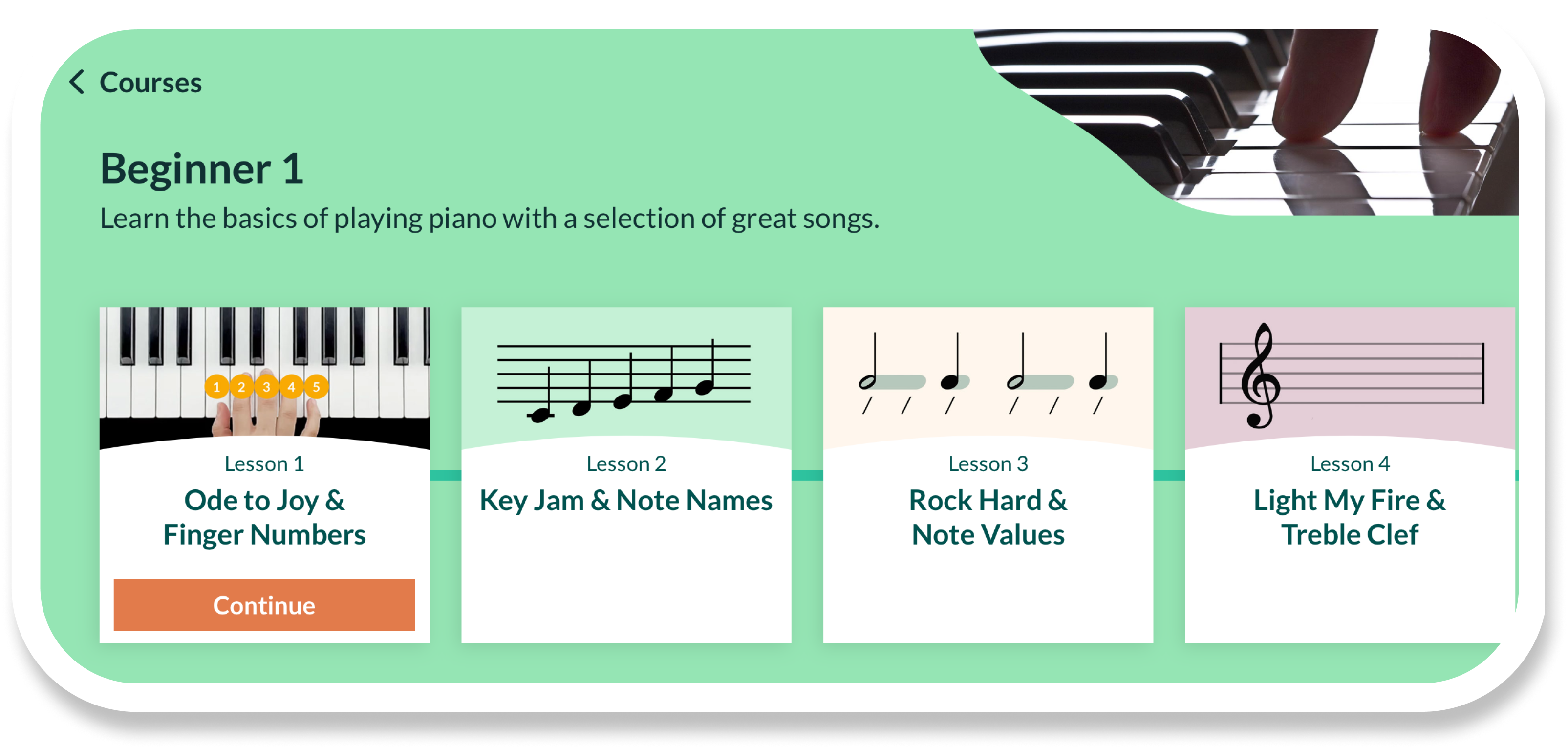
What are piano drills?
Piano drills are systematic exercises designed to improve specific aspects of piano playing. These drills focus on developing skills such as finger independence, speed, accuracy, and rhythmic precision.
To understand piano drills, imagine them as the building blocks of a musical foundation. They break down complex techniques into manageable parts, allowing pianists to focus on mastering each component.
For example, a drill might focus solely on finger strength, requiring the player to repeat a specific motion until it becomes second nature. Another drill might emphasize hand coordination, challenging the pianist to synchronize both hands perfectly.
Benefits of piano drills
- Increased agility and strength
- Solidify music theory concepts
- Tackle more complex pieces
- Reduce cognitive load during difficult passages
- Increase rhythmic precision
The consistent practice of piano drills offers numerous benefits that contribute to a musician’s growth. Regular drills increase the agility and strength of each finger, allowing for more precise and controlled movements. This improvement is crucial for playing fast passages cleanly and for executing intricate pieces that require nimble fingers.
Beginner piano drills often involve repetitive practice of scales and chords, which solidifies fundamental musical theories and improves sight-reading skills. By practicing scales in various keys, pianists become familiar with different tonalities and harmonic progressions, which enhances their overall musical comprehension.
Drills that emphasize rhythmic accuracy help pianists internalize different time signatures and rhythmic patterns. This precision is essential for playing with other musicians and for maintaining a steady tempo during solo performances. Regularly practicing drills encourages active listening. Pianists learn to identify subtle nuances in their playing, such as dynamics, articulation, and phrasing. This heightened awareness contributes to more expressive and refined performances.
Essential piano drills for beginners
For those new to the piano, certain foundational drills are indispensable. These piano exercises to improve technique establish the basic skills necessary for more advanced techniques and pieces. Let’s check out a handful of drills on piano you can start incorporating into your practice today!
Five-finger scales
These involve playing five consecutive notes in each hand, starting with simple keys like C major. The drill focuses on smooth and even key presses, foundational for future scale practice. Beginners should practice these scales slowly at first, ensuring that each note is played with equal strength and clarity.
Chord transitions
Beginners should practice transitioning between major and minor triads in easy piano progressions to build hand coordination and familiarity with common harmonic patterns. Start with easy chord progressions, such as C-G-Am-F, and gradually increase the complexity as proficiency improves.
Arpeggio basics
Simple arpeggios help in understanding chord inversions and hand stretching. Beginners should start with one octave and gradually increase the range as comfort and accuracy improve. Practice arpeggios in both hands separately before attempting to play them together.
Finger independence exercises
These drills focus on isolating individual fingers to move independently from the others. One example is the Hanon exercise, which consists of repetitive patterns that challenge each finger’s strength and agility. Practicing these exercises daily can significantly improve finger control and hand coordination.
Sight-reading drills
To develop sight-reading skills, beginners should practice reading and playing simple pieces at first sight. Choose pieces that are slightly below your current playing level and gradually increase the difficulty. Focus on maintaining a steady tempo and playing without hesitation.
Rhythmic exercises
Clapping or tapping out rhythmic patterns before playing them on the piano helps internalize different rhythms in music. Use a metronome to practice playing scales or simple melodies with varying rhythms, such as quarter notes, eighth notes, and triplets.
Intermediate techniques
As one advances, intermediate drills can further refine playing skills. These drills build upon the foundational techniques established during the beginner phase and introduce more complex elements of piano playing.
Articulation exercises
Practicing different types of articulation, such as legato (smooth and connected) and staccato (short and detached), can enhance expressiveness and clarity in playing. Use simple pieces or scales to experiment with various articulations and refine your technique.
Octave jumps
These drills focus on extending the pianist’s reach and improving accuracy over larger intervals, essential for classical and jazz pieces.
Start by practicing octave jumps slowly, ensuring that both notes are played cleanly and accurately. Gradually increase the speed as your confidence grows.
Dynamic control
Drills that focus on playing dynamics help in mastering the control over soft and loud passages, which is crucial for expressive playing.
Practice playing scales or simple pieces with varying dynamics, such as crescendo (gradually getting louder) and decrescendo (gradually getting softer). Pay attention to maintaining a consistent tone quality throughout.
Pedal integration
Effective use of pedals can dramatically change the sound of a piece. Intermediate players should practice drills that combine pedal use with their regular exercises to ensure seamless integration.
Start by practicing simple pieces with the sustain pedal, focusing on timing and clarity. Gradually incorporate the use of the soft pedal and the sostenuto pedal in more complex pieces.
Hand independence drills
These exercises challenge the pianist to play different rhythms, dynamics, or melodies in each hand simultaneously.
One example is practicing scales in contrary motion, where both hands move in opposite directions. Another is playing a simple melody in the right hand while maintaining a steady rhythm in the left hand.
Common challenges and solutions
Navigating through common challenges can help maintain progress and motivation. Here are some typical obstacles pianists face and strategies to overcome them:
| Stiffness and tension | Ensure proper hand posture and frequent breaks during practice to avoid physical strain. |
| Frustration and plateaus | Break down pieces and drills into smaller, manageable sections, focusing on gradual improvement. |
| Adapting practice for progress | Varying practice routines and incorporating new drills can help overcome stagnation and inspire continued growth. |
| Balancing technical and musical practice | While technical drills are important, it’s equally crucial to spend time working on musical interpretation and expression. |
| Dealing with performance anxiety | Practicing performance scenarios, such as playing in front of a mirror or recording yourself, can help build confidence. |
| Maintaining motivation | Set long-term goals and remind yourself of why you started playing the piano. |
Tips for success
- Regular, focused practice
- Mindful repetition
- Record and review
- Set specific goals
Successful piano practice isn’t just about what drills you do, but how you approach them. Let’s explore some strategies you can use to increase your success with piano drills and many other facets of learning the piano.
Learning the piano is a long-term commitment that requires patience and perseverance. Progress may sometimes be slow, but consistent effort and dedication will yield results over time. Embrace the process and celebrate small milestones along the way. Working with a piano teacher or mentor can provide valuable feedback and personalized instruction. They can help identify areas for improvement, suggest new drills and exercises, and offer guidance on musical interpretation. Don’t hesitate to ask for help and seek out opportunities for growth.
The YouTube video below from Mangold Project takes us through five simple piano exercises for building technique.
Skoove embodies the future of piano learning with its interactive platform that offers real-time feedback and personalized instructions. This modern approach to learning integrates well with traditional drills, enhancing the educational experience through engaging, adaptive content designed for all levels of learners.
Skoove’s interactive lessons guide you through each drill, providing instant feedback on your performance. This feedback helps you identify areas for improvement and make necessary adjustments in real-time. The platform also offers a wide range of exercises and drills tailored to different skill levels, ensuring that you are always challenged and motivated to progress.
By incorporating Skoove into your practice routine, you can benefit from the structured guidance and interactive elements that enhance your learning experience. Whether you are a beginner looking to build a strong foundation or an intermediate player aiming to refine your skills, Skoove provides the tools and resources to help you achieve your musical goals.
Make piano drills fun!
Learning piano drills is a part of every pianists’ journey. There is no shortage of drills to explore based on your ability levels and technique goals. Furthermore, you can always create drills out of difficult passages or based on your own creativity! Making drills, and other practice items, fun and enjoyable will help you make faster and more meaningful practice on the piano.
Try Skoove today and experience the difference structured and interactive learning can make in your musical journey.
Author of this blog post:
Susana Pérez Posada

With over seven years of piano education and a deep passion for music therapy, Susana brings a unique blend of expertise to Skoove. A graduate in Music Therapy from SRH Hochschule Heidelberg and an experienced classical pianist from Universidad EAFIT, she infuses her teaching with a holistic approach that transcends traditional piano lessons. Susana’s writings for Skoove combine her rich musical knowledge with engaging storytelling, enriching the learning experience for pianists of all levels. Away from the piano, she loves exploring new places and immersing herself in a good book, believing these diverse experiences enhance her creative teaching style.
Published by Lydia Ogn from the Skoove team




